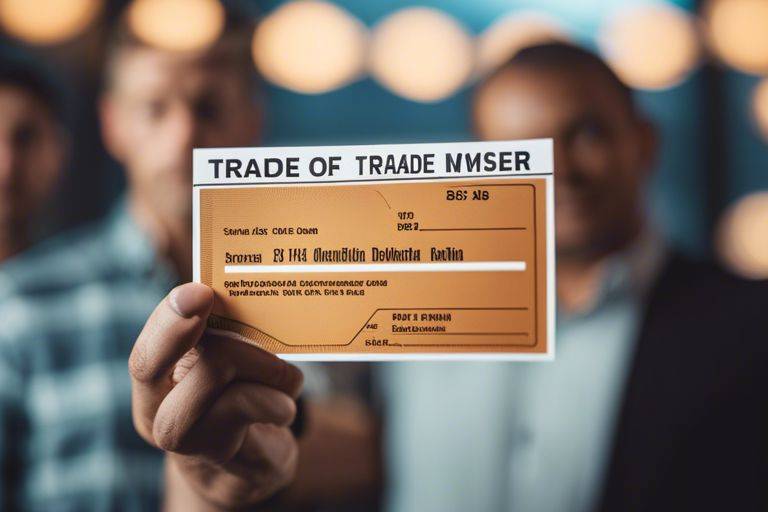- May 23, 2024
- Posted by: cigdubaiae
- Category: Trade License

Common Misconceptions About Trade Licenses Debunked
Many individuals are under the mistaken belief that trade licenses are optional or unnecessary for certain businesses. This common misconception can have severe repercussions including fines, legal action, and even the closure of your business. In this informative blog post, we will address and debunk some of the most prevalent myths surrounding trade licenses. It’s crucial to have a clear understanding of the importance and requirements of trade licenses to ensure your business operates legally and successfully. Let’s dive in and set the record straight on trade licenses.
Key Takeaways:
- Trade licenses are not just for big businesses: Contrary to popular belief, trade licenses are important for businesses of all sizes, including small and home-based businesses.
- Trade licenses are not just for retail businesses: Many people think trade licenses are only required for businesses that sell products, but in reality, service-based businesses also need them, such as contractors, consultants, and freelancers.
- Trade licenses are not optional: Some individuals may believe that they can operate without a trade license, but it is a legal requirement in most jurisdictions. Operating without a license can lead to hefty fines and legal consequences.
Misconception 1: Trade Licenses Are Unnecessary for Freelancers
The Reality for Independent Contractors
For many freelancers, the idea of obtaining a trade license may seem unnecessary due to the nature of their work. However, it is important to understand that operating without a trade license can have serious implications, including legal and financial repercussions.
Legal Implications of Working Without a License
Reality check for independent contractors – working without a trade license is not only risky, but also illegal in many jurisdictions. Penalties for working without a license can include fines, legal action, and damage to your professional reputation. It’s crucial to comply with local regulations and laws to protect yourself and your business.
Licenses: Without a trade license, you may also be ineligible for certain business opportunities or projects. On the flip side, having a trade license can provide credibility to your freelance business, instilling trust in potential clients and opening doors to new opportunities.
Misconception 2: All Businesses Require the Same Type of Trade License
One common misconception surrounding trade licenses is the belief that all businesses are required to obtain the same type of license. In reality, the licensing requirements can vary greatly depending on the nature of the business and the industry in which it operates. It is imperative for business owners to understand these variations in order to ensure compliance with the law.
The Variance in Licensing Requirements
License requirements can differ based on factors such as the type of products or services offered, the location of the business, and the number of employees. It is crucial for business owners to thoroughly research and understand the specific licensing requirements that apply to their industry to avoid any legal issues or fines.
How Industry-Specific Licenses Work
For businesses operating in regulated industries such as healthcare, construction, or food services, industry-specific licenses are often required. These licenses are tailored to the specific regulations and standards of the industry, ensuring that businesses meet the necessary criteria to operate legally. Failing to obtain the appropriate industry-specific license can result in serious consequences for a business, including fines, penalties, and even closure.
Misconception 3: Once Acquired, a Trade License Is Valid Indefinitely
The Need for License Renewal
For businesses and individuals holding trade licenses, it’s crucial to understand that these licenses do not remain valid indefinitely. Most trade licenses come with an expiration date, and renewing them is a mandatory process to continue operating legally.
Consequences of Lapsed Licenses
On failing to renew a trade license upon expiration, severe consequences can follow. Operating with an expired license is illegal and can lead to hefty fines, penalties, or even forced closure of your business. It can damage your reputation, erode customer trust, and hinder your ability to secure loans or contracts.
It is imperative to keep track of your trade license expiration date and initiate the renewal process well in advance to avoid any disruptions or legal ramifications.
Misconception 4: Obtaining a Trade License Guarantees Business Success
Your Intellectual Property Misconceptions Debunked may shed some light on the complexities of legal requirements for businesses. One common misconception is that obtaining a trade license ensures automatic success for a business, but this belief is far from reality.
The Limited Scope of Trade Licenses
One important thing to understand is that a trade license only grants you the legal right to operate within a specific jurisdiction and in a particular industry. It does not guarantee the success of your business or protect it from failure due to other external factors.
Additional Factors Influencing Business Success
Business success depends on a myriad of factors, including market demand, competitive landscape, economic conditions, management expertise, and marketing strategies. Any business, regardless of having a trade license or not, must navigate these factors effectively to thrive in the market.
Trade licenses are vital legal requirements for operating a business, but they do not ensure automatic success. Understanding the broader landscape of business dynamics and addressing key factors influencing success is crucial for sustainable growth.
Misconception 5: Trade Licenses Are Purely a Formality
The Protective Role of Licensing
all too often, businesses view trade licenses as mere formalities required to operate legally. In reality, trade licenses play a crucial role in protecting consumers, businesses, and the overall economy. Obtaining a trade license ensures that businesses meet certain standards of quality, safety, and professionalism, safeguarding the interests of all parties involved.
Regulations and Compliance – More Than Just a Checkmark
On the surface, it may seem like obtaining a trade license is just a regulatory checkmark. However, the process goes much deeper than that. Regulations and compliance are in place to ensure that businesses adhere to specific standards, guidelines, and ethical practices. This not only protects consumers from subpar products and services but also creates a level playing field for businesses, fostering fair competition in the market.
To wrap up
Taking this into account, it is crucial for individuals and businesses to have a clear understanding of trade licenses to avoid falling for common misconceptions. By debunking these myths and clarifying the requirements for obtaining a trade license, it becomes easier to navigate the process and ensure compliance with regulations. Recall, trade licenses are not just a formality, but a legal necessity that safeguards the interests of both the business and the consumers. Do your research, seek guidance from the relevant authorities, and make informed decisions to successfully run your business with the right licenses in place.


